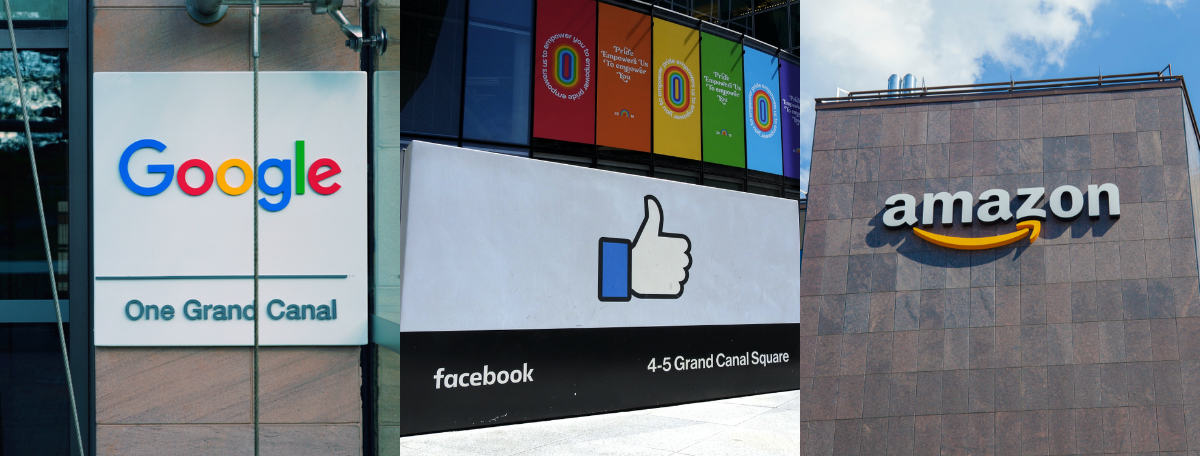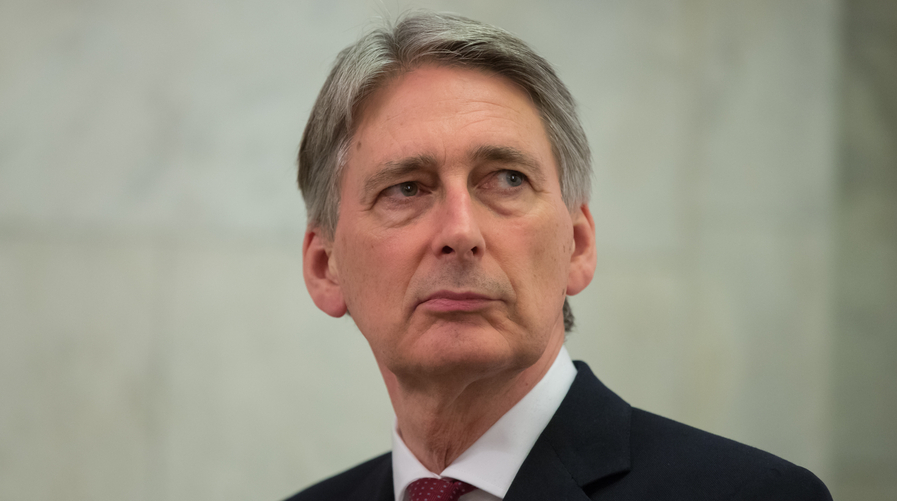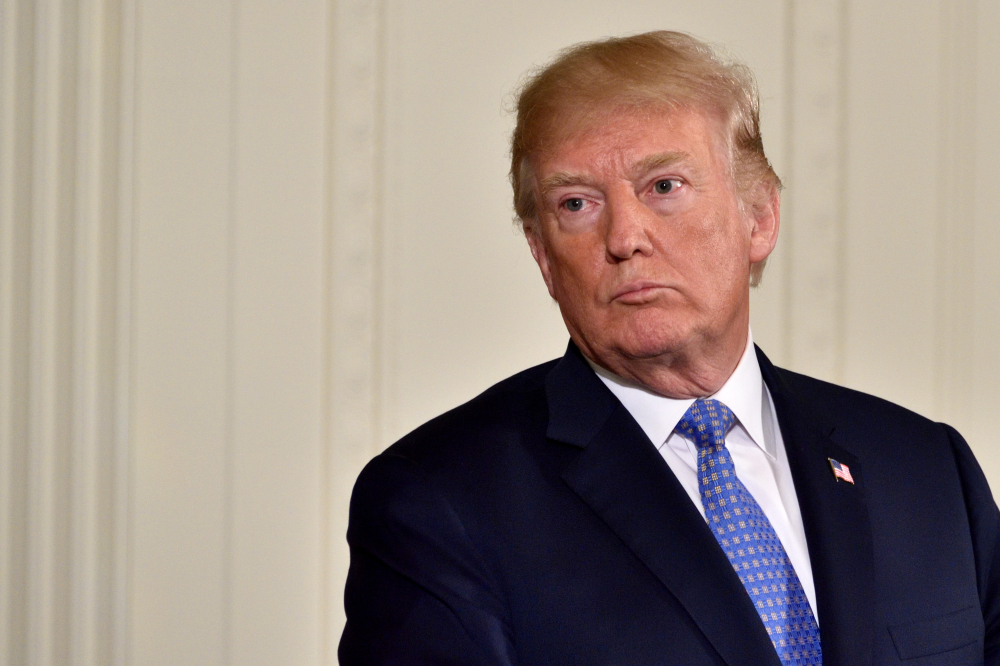UK presses ahead with digital services tax
The UK and France are pressing ahead with a digital services tax (DST) in the face of pressure from the US
The UK and France are pressing ahead with a digital services tax (DST) in the face of pressure from the US

French senators gave their final approval yesterday to introduce a 3% tax on revenue generated in France by large internet firms, which could yield 500 million Euros. The tax will target around 30 companies, including US firms such as Google, Amazon and Facebook.
Such firms pay little tax in Europe by funnelling sales through countries with favourable tax regimes, such as Luxembourg and Ireland.
Targeting these companies has led the US to call the tax ‘unfair’, despite it also applying to some European and Chinese firms, with president Trump threatening to retaliate by imposing further trade sanctions on France.
In response, France’s finance minister Bruno Le Maire defended the tax, saying that allies should be able to sort out their differences “in other ways than by using threats… France is sovereign, and France decides its own tax rules.”
The UK also announced yesterday its plan to implement a similar tax on the tech giants, but why are the two European nations going it alone?
While there have been proposals from the OECD for a European-wide effort to close loopholes and ensure these large tech firms are paying tax on their revenue, the UK and France feel that not enough is being done, and therefore have taken matters into their own hands after attempts to agree a joint EU tax failed.
Paul Monaghan, CEO of Fair Tax Mark, a not-for-profit business that seeks to encourage and recognise organisations that pay the right amount of corporation tax, said: “These countries are pursuing these initiatives because of the complete failure by international tax standards to deal with digital taxation.
“The OECD’s proposals, which closed lots of loopholes, still don’t effectively deal with this area. Therefore, countries are going unilateral. I completely understand why they would do it.”

In his October 2018 Budget, Chancellor Phillip Hammond announced the UK’s plan to introduce its own DST, saying: “The UK has been leading attempts to deliver international corporate tax reform for the digital age.
“A new global agreement is the best long-term solution. But progress is painfully slow. We cannot simply talk forever. So we will now introduce a UK digital services tax.
“It is only right that these global giants, with profitable businesses in the UK, pay their fair share towards supporting our public services.”
The government forecasts that the DST will raise £275m in its first year of operation, and £440m a year by 2023-24.
The tax would apply from April 2020 to companies with a global revenue of more than £500 million and UK revenues of more than £25 million, but a spokesperson for the treasury has said that the UK will drop the tax if an international agreement was reached before April.
The lack of collective international action, and the fact that France and the UK feel the need to take a more drastic approach, shows the challenge of receiving international consensus on how to tax these companies.
In addition to the UK and France, Spain, Italy and Austria are all considering their own equivalent DST, while Ireland, Denmark, Sweden and Finland are all opposed to the idea.
The UK has been quite explicit in saying that the proposed DST is a short-term measure to push for wider European and international action.
George Turner, director of Tax Watch UK, said: “The digital services tax is only being used as a threatening mechanism and shows acceptance that international cooperation has failed.
“It also recognises the fact that large, technology-based companies have been engaging in very aggressive tax avoidance for many years.
“This is a way of addressing some of that and stopping some of that leakage until a better solution can be agreed upon.”
The levy would be charged at 2% on turnover, and will only apply to revenue on search engines, social media platforms and online marketplaces.
Some think the UK’s plan to tax turnover goes against the established international principles of taxation, as it will cause companies with a higher turnover to be taxed more, rather than those with greater profit.
This has proven to be a sticking point in dealing with the US in negotiating a post-Brexit deal.
A leaked email obtained by The Telegraph reportedly states that the UK’s plans to make the Silicon Valley giants pay more tax was posing a roadblock in trade negotiations, resulting in increased pressure from the US trade department to wait for the OECD to agree international rules.
Based on Trump’s reaction to France introducing the tax, the UK should expect more backlash from the US the closer it comes to implementing the DST.
Yesterday, the president ordered an investigation into the French digital tax to determine whether it “unfairly targets American companies”, according to US trade representative Robert Lighthizer who announced the investigation on behalf of Trump.

“The structure of the proposed new tax as well as statements by officials suggest that France is unfairly targeting the tax at certain US-based technology companies,” said Lighthizer. In his statement he said he had been ordered by the president to investigate whether the tax is “discriminatory or unreasonable and burdens or restricts United States commerce”.
With US-UK diplomatic relations currently under strain following the leaked email from the now ex-US ambassador Sir Kim Darroch, yet crucial to the UK’s transition into a post-EU world, it is vital that it does nothing to further antagonise the president and his administration, and could cause the UK government to think twice before following France’s lead.
Matthew Herrington, a tax partner at KPMG UK said: “There is clearly no appetite at present from the UK government to shelve the proposals pending wider global coordination. However, it does remain to be seen whether this will change in light of [the] announcement that the US may impose retaliatory tariffs relating to the French digital services tax.”
While the current government has reaffirmed its plans to press forward with the DST, the cabinet could look very different in the coming weeks and might be more inclined to bend to the inevitable demands from the US to suspend the plans and to wait for a wider international agreement.
In the same budget announcement in October 2018, in addition to the DST the Chancellor also announced a second, lesser known measure and extension of income tax called “offshore receipts in respect of intangible property.”
This measure would tax the large tech firm’s royalties, which are at the heart of these company’s tax avoidance efforts and does so while falling within internationally-agreed principles of dividing taxing rights between countries.
According a report compiled by Tax Watch UK, the measure has the potential to raise up to £8bn in tax for the UK.
However, due to a decision made by the UK government the tax would not apply to countries the UK has a tax treaty with, which applies to around 150 countries.
George Turner said: “In theory, this is a much better way of addressing the problem, because it deals with profit shifting, as it and it deals with the way tech companies in particular move their money around.
“It is also in accordance with current international principles, so it is likely to be subject to fewer challenges, and in the first year of its operation it is forecast to raise even more than the digital services tax.”
“The problem is that it rapidly drops off because of a bizarre decision by the UK Government to not apply it to countries we have a tax treaty, of which there are about 150 in the world. It’s an anti-tax avoidance measure, essentially, that doesn’t apply to many of the world’s tax havens.”